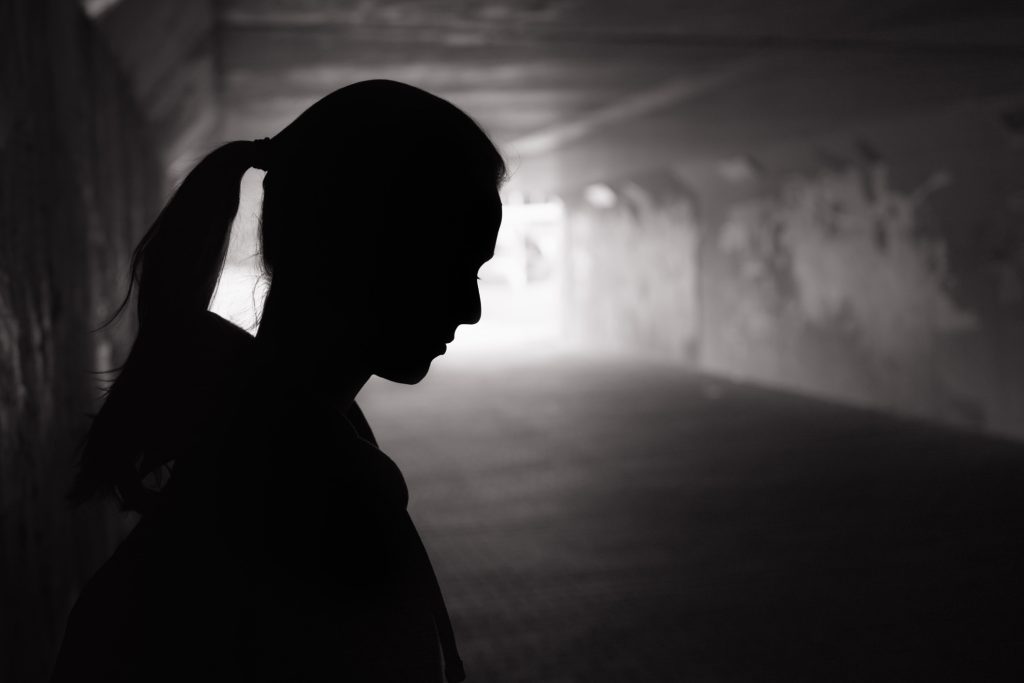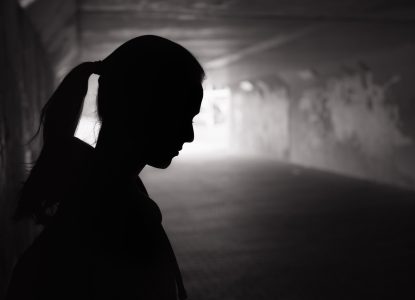By Sister Gabriella Bottani, International Coordinator of Talitha Kum
– – –
I belong to Talitha Kum, the international network of Catholic Sisters engaged in combatting human trafficking. Set up by the International Union of Superiors General (UISG) in 2009, today we count 60 active networks, involving over three thousand sisters, allies, and friends who last year supported over fifteen thousand (15,827) survivors.
These thoughts are the result of a work started in September 2019 to promote a “Talitha Kum Call to Action.” On November 25th, we presented the final outcome of this 2-year-long process, but here I will present a preview of that work.
The Invitation to Rise Up
Faith and Spirituality witness and make tangible the presence of God to transform even the most hopeless situations and raise what seems to be dead to life.
Talitha Kum: “Little girl, I say to you, rise up” (Mark 5:41).
Jesus pronounced these words to Jairus’ daughter, a 12-year-old who lay apparently dead. Jesus took her hand, and she immediately stood up and began to walk. She was healed. The expression ‘Talitha Kum’ defines the network’s identity and mission by referring to the transformative power of hope, compassion, and mercy.
In a very unique way, the life histories of millions and millions of trafficked and exploited victims and survivors reach out to us with their hands, just as Jesus did with the young girl, inviting us to rise up, with courage and hope, and to stand by our commitment for a just world in which every human being lives a life in dignity and fullness.

Reaching Across Faiths as Brothers and Sisters
Talitha Kum is a network in dialogue with different faiths: In Thailand, Catholic Sisters are collaborating with Buddhists Nuns; in the Middle East, we started the first interreligious network gathering Catholic, Orthodox, Muslim, and Druse Women; in Italy, Talitha Kum started a dialogue and ecumenical collaboration with Christian churches; in Indonesia, Catholics and Muslims gather together on February 8th to celebrate The International Day of Prayer and Awareness against Human Trafficking.
When we meet victims in various contexts of vulnerability—such as women and children exploited in the sex market, undocumented migrants, asylum seekers, people in detention, and street children—we try to establish a trustful relationship, providing not only urgent assistance but also responding to their spiritual needs, in the respect of the faith of each person. We meet as sisters and brothers, hosting them as our most welcome guests.
A Worsening Global Crisis
All over the world, we are observing an increase in cases of human trafficking and situations where vulnerabilities are exploited by traffickers. We are also faced with a decrease in governmental resources for assisting victims and survivors.
The pandemic exacerbated the situation, worsening existing difficulties in providing jobs, education, housing, and psychosocial health care, which are foundational for a real healing process and social integration.
Pope Francis said that “Human trafficking is an open wound on the body of contemporary society …” Indeed, Human trafficking can be considered an indicator of our human relationships in the age of globalization. It urges us to break the silence and indifference, recognizing in the other our sister, our brother—a member of the same human family, loved by God.
An Important Focus on Women
Trafficking in persons affects people everywhere. But existing inequalities in economic, social, familial, cultural, and religious status make women and girls particularly at-risk. Gender inequality is one of the major drivers of human trafficking, supported by a global culture of exploitation and violence against women.
Talitha Kum choses to stay with women and girls, because women are important “centerpieces”—or, to use a more popular term, women are powerful “hubs” for transforming the mentality of exploitation and trafficking into one of care—one that empowers all of us to foster safe and thriving communities.
Calls to Action
The cry of trafficked victims and survivors calls governments, religious leaders, and all people of good will to take action, working together for a “Time to Heal.” Let me highlight a few of the most urgent actions needed at the policy level:
First and foremost, it is Time to Heal the wounds of victims and survivors. Along with other needed policies, states should support the issuance of work and residence permits for victims of trafficking so that social and economic integration and inclusion can be pursued. The healing process often requires many years, so there is an urgent need for long-term psychosocial and health care assistance to heal the deep wounds in survivors’ souls, minds, and bodies.
It is Time to Heal inadequate migration policies, implementing legal pathways of migration. We must promote the fair treatment of migrant workers in the labour market – regardless of their legal status – including by preventing and denouncing abusive and fraudulent recruitment practices, with special attention to women and girls.
It is Time to Heal the inequalities that force people into vulnerable situations where they can be exploited by traffickers. By focusing on prevention activities, especially regarding at-risk and vulnerable populations, we can “vaccinate” our society against human trafficking.
The last call is for every person: It is Time to Heal ourselves. This is probably the most important call in anti-trafficking—the personal transformation. It is time to heal our memory, our listening, our vision, and our daily choices. This is essential if we want to stand in a very concrete way by those who are deep in the darkness of social vulnerability and exploitation.
Conclusion
To make the healing process possible, we call on everyone to disrupt the current narrative of violence and exploitation through concrete daily gestures of welcome, care, empowerment, and inclusion.
Let us do it together.
– – –
Gabriella Bottani, Comboni Missionary Sisters, Social Pegagogist:
Sr. Bottani was born in Italy and shared her life as missionary religious sister in Germany and Brazil. The social ministry of Sr. Bottani was with children and adolescents in a situation of social vulnerability. She got involved in anti-trafficking in 2007, when she was in the Northeast of Brazil. Since 2015, she has been the international coordinator of Talitha Kum, an initiative of the UISG. Awards: 2019 Trafficking in Persons Hero Award (US Department of State), 2020 Ufficiale al Merito della Repubblica Italiana (President of the Italian Republic).


